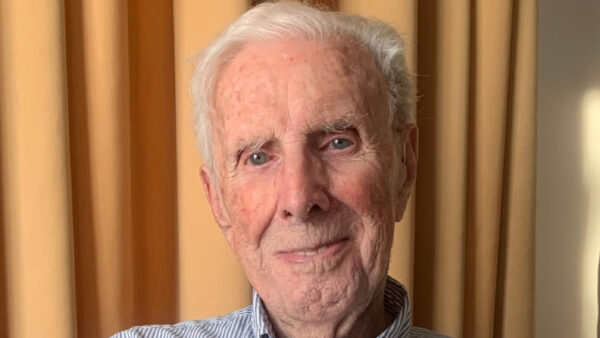Tim Greene and Chris Cornelius reflect on the last year with the Independent Professional Seed Association and look toward the future.
Being president and upcoming president of the IPSA board of directors comes with a lot of responsibility — mainly, trying to do whatever’s in the best interest of IPSA members.
One of the biggest road bumps they faced wasn’t something anyone saw coming: the pandemic.
“My first few years on the board, we were able to get together for brainstorming sessions with face-to-face communication,” Greene says. “Since Brett’s presidency last year and through my term this year, we’re still hosting meetings on Zoom calls.”
And while Zoom calls are something the industry has gotten used to, the real hiccup becomes the distractions that occur during Zoom meetings.
“The upside is you don’t have to take the time to travel,” Cornelius says. “The downside is: you’re not traveling. It’s really easy to get distracted when you’re on a Zoom call.”
In comparison, in a boardroom you can continue to see faces, eyes and smiles — and Cornelius says that body language is invaluable.
“Being able to feed off each other and pick up cues that someone agrees with you is something you can run with,” she says.
Despite the difficulty without in-person communication, the IPSA board has been continuing to enhance member benefits.
“We’ve done some really good things this year,” Greene says. “We added a new executive director, Catherine Ballard, who’s been working to encourage new member interest and expand opportunities for members. Another instrumental element the board agreed on is adding a presence in Washington D.C. with Laura Peterson.”
Adding a presence in D.C. has been a big change for IPSA; keeping independents seen in Washington D.C. and having a presence on a regular basis can ensure the ability to react to new legislation on the table.
Also, IPSA continues to work on monitoring trade.
“Concerns like trade, ethanol and artificial meat that can affect farmers, ultimately affect seed companies as well,” says Greene. “While we try to be aware of those concerns, at IPSA, we focus on genetic and trait access along with how to help the independent seed sector remain viable.”
Cornelius says that as she preps for her term, making sure that independents have a level playing field across the board is top-of-mind.
“It’s a big hill to climb,” she says. “But, you climb a mountain one step at a time.”
In addition, Cornelius says she is excited about an idea from fellow board member, Chris Latham about firming up the IPSA message.
“We want a clear message that has four or five points, similar to core values or a mission statement,” she says. “He proposed a one page piece to be written that everyone has access to — not just the board, but all members of IPSA. Should a member receive a call from a local newspaper media outlet, they have talking points in hand to share the IPSA story.”
Altogether, Greene is excited for what his term has brought to the table for IPSA.
“My ultimate goal as president has been to focus on whatever aspects are needed to secure the future for independent seed companies,” says Greene. “Competition is what made America great, and we as independent seed companies provide that stimulation for our industry. So, all these issues that we can address are a great benefit.
“I just want to see IPSA continue the fight for the independent seed sector, because we play such a vital role in the fabric of agriculture.”
Mentoring and Planning
Greene and Cornelius support all aspects of IPSA, however their favorites are
different.
Heavily influenced by his father-in-law, Greene hopes to continue growing and developing the IPSA scholarship and mentorship program.
“I’m really proud of our scholarship program to continue promoting agriculture with those young groups,” he says. “We target those going into college or pursuing focused graduate degrees and extend the scholarship value with our mentoring program. Our ability to interact with scholarship recipients has been truly rewarding.”
In addition, Greene says that the IPSA annual meeting continues to be one of his favorite conferences — although it’s not due to his bias of being on the board.
“I feel it’s one of the best meetings I attend each year,” he says. “We work hard to bring relevant topics and training to our membership that will help move their business forward.”
Cornelius says serving on the planning committee for the IPSA annual meeting is her favorite part.
The annual conference committee was the first committee Cornelius served on, and it continues to be her favorite, even after 10 years.
“It’s one of the best conferences our organization attends,” she says, echoing Greene’s sentiment. “It’s planned by the members for the members — that’s why it is so good.”
Cornelius says one reason the conference is so great every year is specifically because of the member involvement in planning — from seed members to associate members to sponsors.
While virtual wasn’t everyone’s first choice for the 2021 Annual Meeting, Cornelius said she was excited because their sales team watched the education sessions, and it was the first time the entire team could ‘attend’ an IPSA conference.
“I’m really excited about our keynote speakers for this January,” Cornelius says. “They are will be exceptional.”
Make sure to tune in next week Jan. 24-26 as Seed World covers the IPSA annual conference.
This is part three of a three part story. Want to catch up? Read part one and part two.
Want to Read More? Check Out:
Independent Seed Companies Aspire for Longevity and Differentiation













